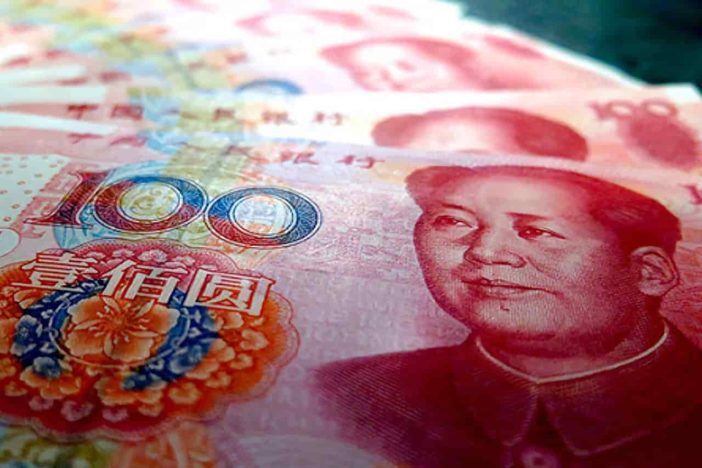In light of data nationalism and technology standards around the world, the digital yuan has become a hot topic. Digital currency electronic payment (DCEP) is supposed to be a digital ledger that replaces a variety of paper RMB currencies. It will compete with USD and various cryptocurrencies.
In terms of cryptocurrencies, it would not, at least in a nominal or philosophical sense, be a currency, though it does appear to be using the blockchain technically speaking – and, in its current form, it represents an antithesis to the decentralized approach advocated by cryptocurrency believers.
One of the most aggressive consolidations in economic power in the 21st century would be the digital yuan – which may be the most aggressive. There will be approximately 1.3 billion people deprived of the ability to use physical cash to protect their privacy, whereas they will have to rely on a government-controlled application with a new set of freedoms that cash would not provide.
Is This Going to Work?
In Hong Kong, the wallet used to access funds, secured by the People’s Bank of China, is authorized only by the financial authorities. It is in stark contrast to the spirit of open-source that fuels cryptocurrency developers to freely publish their code and to participate in a wider community of developers.
The vast majority of money is already digital, but the layer of physical cash, called M0, is what will matter most. It enables developers to analyze all elements of an individual’s economic life, from broad wholesale distribution involving large players to much more granular flows involving individual elements. A country that can use this data without constraint is well-positioned to combat state-defined sins, but it can also evolve its economic metrics and systems at the same time.
Even though China has the biggest cashless population in the world, Chinese companies are determined to collect massive sums of data derived from that population. Wrongly, this data cannot be easily integrated into other data sources, unlike the government.
What makes Digital Yuan so special?
In this respect, a digital yuan would help China become even more competitive, and give the country flexibility to make granular and aggregated economic decisions as it sees fit. Many Western countries accept that their CPI/inflation is based on buckets and surveys, rather than actual spending patterns across the population as they occur.
Additionally, the digital yuan is part of China’s long-term goal to make the RMB more widely accepted throughout the world.
RMB could become a viable alternative to the USD as dollar-driven crises continue to unfold in emerging countries. China’s Cross-Border Interbank Payment System, a bid to challenge SWIFT’s dominance, will be further supported by the lower transaction fees and quicker settlement times promised by a digital-first DCEP.
China will attempt to impose new technological standards on the world, including those for digital currency, as it integrates more tightly with its developing trading partners to overthrow the economic rules of the US-driven global order.
E Yuan – A Bitcoin competitor?
The fundamental structure defining how state and corporate powers interact in China is hidden behind a decentralization act that conceals the fundamental structure, DCEP may increase the value of the digital yuan — which could become more than a virtual version of the RMB– and accelerate the advancement of China’s currency into a premier reserve currency.
Chinese officials have announced plans to digitalize the Renminbi by issuing a new cryptocurrency known as the e-Yuan. In other words, the e-Yuan could become the most popular cryptocurrency in the world. Despite China’s population of over 1 billion, the country’s population is always on the lookout for new payment solutions.
In addition to bitcoin, the e-yuan is one of the main competitors of that currency. The value of the $1 e-yuan could skyrocket to $50,000 within a month of launch, according to experts. It has been developed to help you take advantage of the volatility created by this announcement.
Immediately following this news, crypto prices have become extremely volatile. This implies that you could make good profits today by investing as little as $250. A customer survey found Yuan Pay Group to be in the top 10 for many categories, especially for sentiment-driven auto-trading.
Final Thoughts
Even if corporations are allocated to nodes, it is unclear whether or how they will ultimately influence state-driven decisions. While China’s preference for blockchain suggests it will have more in common with its corporate-state nexus to create its new currency, cryptocurrency suggests that China’s economic philosophy will be closer to the blockchain.
A central component of China’s efforts to upend the global financial order, the digital yuan is a centerpiece of the country’s drive to increase foreign acceptance of Chinese currency and establish industry-wide measurement standards for financial data processing. Whether other world powers respond to this attempt remains to be seen. While the global financial order steadily shifts towards digital currencies, cryptocurrencies still offer a user-based hedge that offers an alternative to traditional financial models – and also new and consolidating ones.





